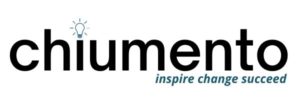“Trust arrives on foot and leaves on horseback”. I first heard this old Dutch saying about 5 years ago. And, of course, it is true. Trust is lost much faster than it is won.
Building up trust is a bit like filling a piggy bank. You put little bits of loose change in over a long period of time. Then when, when the time comes, you can pull out the stopper and use the accumulated credit to do something special.
Great leaders can leverage accumulated trust when big organisational challenges come along. It earns them the ability to ask people to do amazing things. Often including activities well outside their normal “comfort zone”.
At its core, organisational trust is all about creating the confidence to do something in the knowledge your boss, your colleagues and the business will ultimately have your back. Armed with that belief it is so much easier to take risks and “have a go”.
The opposite, of course, is a blame culture. One where nobody wants to take ownership of anything for fear of being punished if it goes wrong. All that fear leads to abdication and ultimately stagnation. Change is seen as a threat and resisted.
So how much trust is left in your corporate “piggy bank” as we start to emerge from the COVID pandemic?
For much of the last two years, organisations have had to ask their people to work in new ways and accept very significant changes to their working lives. At the time it was often simply a matter of survival. Now the reflection will start. How will we feel, and how will we react, once we come out of survival mode? How much trust has been used up and how do you start to re-fill the bank?
Many people I meet are still uncertain what their new normal will look like. For example, some have got used to remote working and never want to return to the office. Others hate homeworking but are fearful they will never be back in the office full time. People deal better with uncertainty when they trust the organisation and its leaders.
Many businesses are dealing with uncertainty too. Customer behaviours and expectations have changed. Recruitment is tough. Wages are under pressure as demand for skills often exceeds supply. And a report out this week says 45% of staff are intending to change jobs in the next 12 months. So a wave of attrition is on the horizon. The old “known knowns” have often become today’s “known unknowns”.
For employers and employees alike resilience and the ability to deal with ambiguity will be crucial. Navigating a path into the new normal will be a challenge made harder without trust. People will be watching leaders closely. How they behave in the coming months will be crucial to engagement, motivation, productivity and retention.
Ultimately it is the businesses that can respond fastest to change that benefit most from uncertainty. Your ability to take your people on that journey into the unknown is fueled by trust.
That’s why trust should be high on the leadership development agenda. Which is possibly why our events on leadership and trust are proving really popular right now. We’ve recently run our first event in New York – so far is the word travelling about the work we are doing in this space. If it is a topic that has resonance for you, and you’d like to chat then drop me a message.
‘Trust is easier to lose than build…’ was written by Ian Gooden, CEO, Chiumento Ltd. If you like what you’ve read why not follow us on LinkedIn and read all our future musings on the world of work.

Recent Comments